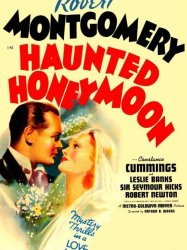Harriet Deborah Vane

- Infos
- Photos
- Best films
If you like this character, let us know!
Harriet Deborah Vane, later Lady Peter Wimsey, is a fictional character in the works of British writer Dorothy L. Sayers (1893–1957).Vane, a mystery writer, initially meets Lord Peter Wimsey when she is on trial for poisoning her lover (Strong Poison) – the detective falls in love with her and proposes marriage but she refuses to begin a relationship with him, traumatised as she is by her dead lover's treatment of her and her recent ordeal. In Have His Carcase she collaborates with Wimsey to solve a murder but still finds him to be overbearing and superficial. She eventually returns his love (Gaudy Night) and marries him (Busman's Honeymoon).
Biography
Harriet Vane is the only daughter of a country doctor. She is an undergraduate at Shrewsbury College, Oxford (the location of which is given as the Balliol College Sports Grounds, now partly occupied by a residential annexe, on Holywell Street) and takes a First in English. Her parents both die while she is quite young and she is left to make her own fortune at the age of twenty-three. She has some success as a writer of detective stories, living and socialising with other artists in Bloomsbury. She begins a relationship with Philip Boyes, a more literary but far less successful writer who professes not to believe in marriage, and she agrees to live with him without marrying. After a year of this arrangement, Boyes believes that she truly loves him and proposes marriage. Angered by his hypocrisy and aghast at being offered marriage as "a bad-conduct prize", Harriet breaks off the relationship.Boyes dies soon afterwards of arsenic poisoning – the method Harriet had researched for her new book. She is arrested and tried for murdering Boyes. Wimsey comes to her rescue by proving who really poisoned Boyes.
After Harriet is acquitted, she remains quite notorious. Sales of her books skyrocket. Wimsey continues to pursue her romantically, but Harriet repeatedly declines marriage on the principle that gratitude is not a good basis for it. She decides to take a walking tour to relax, during which she stumbles over a corpse on a beach, adding to her notoriety. The press is naturally interested; Wimsey hastens to the scene, after receiving a tip from a journalist friend, to help shield Harriet from suspicion. The two investigate the death (when they are not romantically sparring) and unmask the murderer.
A few years later, in 1935, Harriet returns to her old Oxford college for a reunion (or Gaudy) and is asked to investigate some strange occurrences. She protests that she is not a sleuth, and recommends that the college hire professional detectives. However, failing to reach either Miss Climpson, at the female detective agency set up by Wimsey, or Wimsey himself, she agrees to assist the college. Her cover is research into Sheridan Le Fanu, an Anglo-Irish writer of Gothic tales and mystery novels of the 19th century. (In Thrones, Dominations, the Authors' Note (sic) states that Vane published a monograph on Sheridan Le Fanu in 1946.) After months of data gathering but with no resolution in sight, Harriet turns once again to Wimsey for help. By the end of the book the villain has been discovered and Harriet has finally accepted Wimsey's proposal.
The press is delighted to have a woman once accused of murder engaged to a duke's son, and happily publicises the fact. Wimsey and Vane have a small wedding in Oxford with no notice to the press, and escape to their new country residence, Talboys, a Tudor farmhouse in North Hertfordshire which Harriet had admired as a child and which Peter had given her as a wedding present. The body of the former owner is discovered in the cellar, leading them to investigate.
Thrones, Dominations, a novel abandoned by Sayers and finished by Jill Paton Walsh, is set in and around London, shortly after they return from their honeymoon.
The first of their children is born in the story The Haunted Policeman.
By the time of the short story Talboys, they have three sons: Bredon Delagardie Peter Wimsey (born in October 1936), Roger Wimsey (born 1938), and Paul Wimsey (born 1940 or 1941). Chronologically between the two are The Wimsey Papers, a series of epistolary articles Sayers wrote for The Spectator at the beginning of World War II. Jill Paton Walsh referenced The Wimsey Papers in writing A Presumption of Death, set at the beginning of the Second World War, in which Harriet takes a leading role. Sayers told friends orally that Harriet and Peter Wimsey were to have five children in all, though she did not disclose the names and sexes of the two youngest children.
Played by the actor
Filmography of Harriet Deborah Vane (1 films)

Busman's Honeymoon (1940)
, 1h39Directed by Richard Thorpe, Arthur B. Woods
Origin United-kingdom
Genres Drama, Comedy, Comedy-drama, Crime
Themes Théâtre, Films based on plays
Actors Robert Montgomery, Constance Cummings, Leslie Banks, Seymour Hicks, Robert Newton, Googie Withers
Rating61%





Lorsque Lord Peter Wimsey, un détective amateur, se marie avec Harriet Vane, une écrivain spécialisée dans les romans policiers, ils s'engagent à abandonner le crime pour de bon. Pour faire une surprise à Harriet, Peter achète un cottage dans le Devon, où ils prévoient de passer leur lune de miel, accompagnés de leur fidèle valet Mervyn Bunter. Toutefois, le lendemain de leur arrivée, le corps de Noakes, à qui Lord Peter avait acheté le cottage, est retrouvé. Bien que ce village soit généralement paisible, un certain nombre de suspects sont possibles, de la nièce de Noakes à Sellon, le policier du village. Ils ne veulent pas s'impliquer dans l'enquête, mais l'arrivée de leur ami vieil l'inspecteur de Scotland Yard Andrew Kirk change la donne. Peter finit par trouver le coupable et le couple décide de se rendre dans un lieu plus calme mais, quand ils entendent des coups de feu à l'intérieur de l'auberge où ils comptaient s'arrêter, ils s'en éloignent préciitamment.
 Connection
Connection
